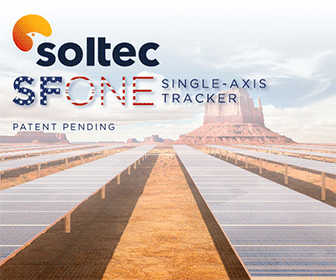DPU Issues Order On Massachusetts Solar SMART Program
In an effort to continue to expand the Commonwealth's clean energy economy while reducing energy rates, the Department of Public Utilities (DPU) issued an Order approving compensation for owners of new solar projects under the Commonwealth's Solar Massachusetts Renewable Target (SMART) program. The program, administered by the Department of Energy Resources, will save ratepayers an estimated $4.7 billion over current programs, and promotes solar development in the Commonwealth through an incentive paid directly by the utility company to the solar generation owner. The approval is the final regulatory step in launching the program that is required by bi-partisan legislation signed by Governor Baker in 2016. With the additional 1,600 megawatts (MW) of installed solar to be supported as a result of the SMART program, approximately ten percent of the Commonwealth's annual electricity needs will be met by solar resources.
"Massachusetts is a national leader in solar energy with over 2,200 megawatts of solar installed across all 351 cities and towns of the Commonwealth and the SMART program will allow Massachusetts to expand its leadership by significantly increasing solar capacity while lowering costs for ratepayers," said Governor Charlie Baker. "In addition to the benefits to ratepayers and the Commonwealth's energy portfolio, the SMART program will be the first in the nation to offer incentives to solar projects that are paired with storage to capture the benefits of solar regardless of time of day or weather conditions."
"Providing residents with access to clean energy is a priority of our administration," said Lieutenant Governor Karyn Polito. "The SMART program will expand access to solar energy by providing more cost-effective incentives to residents and predictability for Massachusetts' solar community."
The SMART program, issued through DOER regulations in August 2017, provides compensation for all new solar projects under 5MW in size in the investor-owned utilities service territory. The program differentiates specific compensation in terms of size and type of solar installations and for the first time in the country provides a specific incentive to pair new solar projects with storage.
"The SMART program is designed to encourage appropriate siting of solar projects by incentivizing projects on rooftops, parking lots, and landfills," said Energy and Environmental Affairs Secretary Matthew Beaton. "By balancing the importance of protecting our state's natural resources while continuing to move towards a clean energy future, the Commonwealth is positioned to continue significant solar development and growth."
The order issued today by DPU is the final step in implementing the program. As a result, the order will expand Massachusetts' leadership advancing distributed clean energy and diversify the Commonwealth's energy portfolio while reducing ratepayer costs. Notably, under the order DPU rejected the distribution companies' proposal for a cap that would have limited the amount of bill credits that individual customers could receive under community solar projects. DPU also rejected the distribution companies' proposal to allow costs to be recovered through a fixed charge, instead requiring all ratepayers to contribute to costs through a volumetric charge as requested by many stakeholders and lowering the cost of the program for residential ratepayers.
"There is an opportunity to capitalize on the benefits of energy storage when paired with renewables and this program is designed to accomplish that," said Department of Energy Resources Judith Judson. "Finding ways to reduce our peak demand and integrate more renewable energy is a top priority for this administration and utilizing solar paired with energy storage in addition to our energy efficiency programs is essential to lowering energy costs and emissions."
"The SMART program tariff will provide more competitive incentives to solar developers and result in ratepayer savings compared to the existing solar incentive programs," said DPU Chairman Angela O'Connor. "As solar costs stabilize, it is essential that both solar customers and ratepayers yield continued benefits for this growing clean energy resource."
In advance of finalizing the SMART program, the Department of Energy Resources conducted nearly 40 working group meetings and reviewed extensive stakeholder comments. Prior to issuing today's Order, DPU held public and evidentiary hearings allowing for robust stakeholder input.
SMART | www.mass.gov
Beaumont Solar | www.beaumontsolarco.com









.jpg?r=3032)
.gif?r=1964)

.jpg?r=9237)